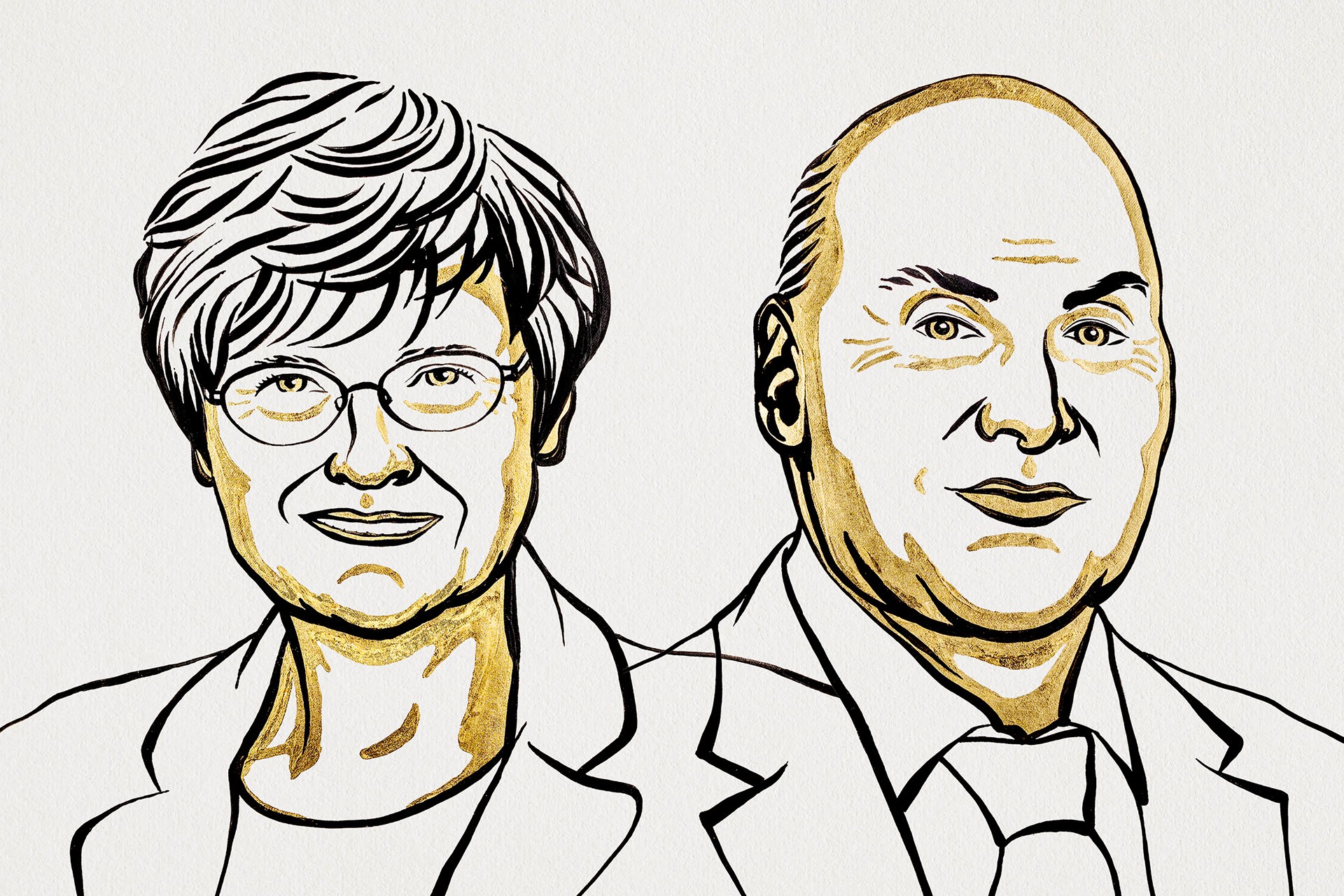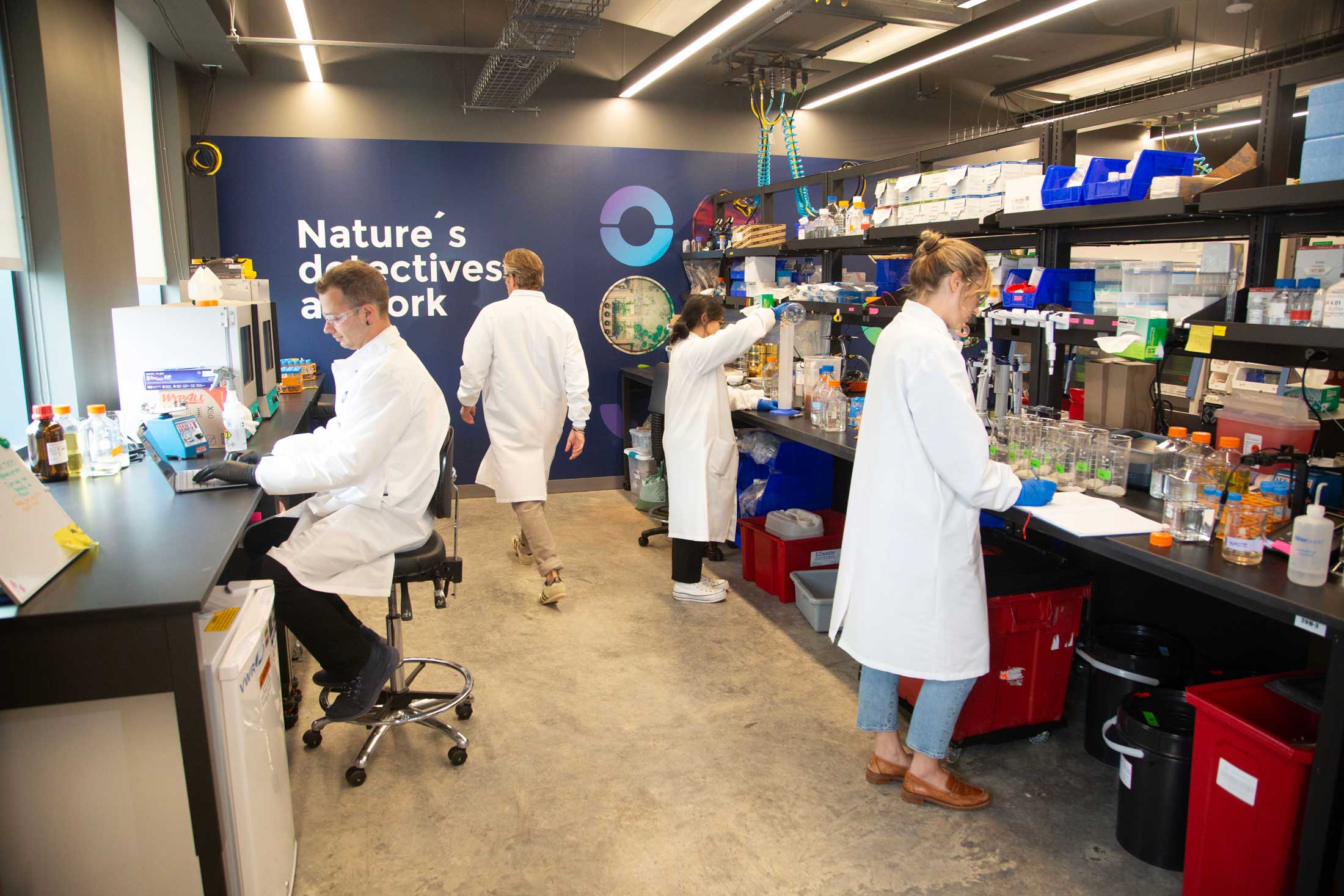Engineered Human Therapies
Nobel Nods: The Penn Pioneers Powering the Pandemic Response
Karikó and Weissman's relentless pursuit of mRNA's potential has earned them the coveted 2023 Nobel Prize in Physiology or Medicine
Oct 3, 2023
Katalin Karikó and Drew Weissman. (Ill. Niklas Elmehed © Nobel Prize Outreach)
In a world where science often feels like a series of serendipitous encounters, two researchers from the University of Pennsylvania have danced their way into the annals of history. Their journey, which began with a fortuitous meeting near a photocopier, has culminated in the most prestigious of scientific accolades: the 2023 Nobel Prize in Physiology or Medicine.
Katalin Karikó and Drew Weissman, the dynamic duo of the mRNA realm, have been the guiding stars behind a revolutionary approach to vaccine development. Their tale is one of persistence, curiosity, and a dash of serendipity. Picture this: the late 1990s, a university hallway, two scientists, and a photocopier. From such humble beginnings, Karikó and Weissman embarked on a quest to harness the power of mRNA as a therapeutic tool.
By 2005, they had cracked the code. They unveiled a method to tweak mRNA, allowing it to be effectively introduced into the body, rallying the troops of our immune system. Unlike the traditional vaccines of yore, their approach didn't require injecting a live or weakened virus. It was a game-changer.
Then, as the world grappled with the sudden onslaught of the COVID-19 pandemic, the fruits of their labor shone brightly. Companies raced against time, using Karikó and Weissman's groundbreaking technology to craft vaccines that have since shielded countless souls from the virus's deadly embrace. Just to paint a picture: in the U.S. alone, over 655 million doses of these mRNA vaccines have been administered since December 2020.
Penn President Liz Magill eloquently captured the essence of their journey: "Katalin Karikó and Drew Weissman embody the spirit of scientific tenacity. Their unwavering commitment to their craft, even in the face of uncertainty, is a testament to the power of perseverance. And they're not done yet. Their promise to continue their work is the kind of inspiration that fuels dreams."
J. Larry Jameson, another luminary from Penn, added, "When we think of the Nobel Prize, we envision trailblazers who've reshaped our world. In the midst of our generation's most daunting health crisis, the world leaned on the genius of Weissman and Karikó. Their vision, which began over 15 years ago, has left an indelible mark on medicine."
Since 1901, the Nobel Foundation has celebrated those who've gifted humanity with monumental breakthroughs. Karikó and Weissman now join an elite club, with Karikó also earning the distinction of being only the 61st woman to be honored with a Nobel.
Their accolades don't end there. From the Lasker-DeBakey Clinical Medical Research Award to being hailed as TIME magazine’s “Heroes of the Year” in 2021, their journey has been nothing short of stellar. Their story, a blend of passion, serendipity, and sheer brilliance, serves as a beacon for all who dare to dream.


















